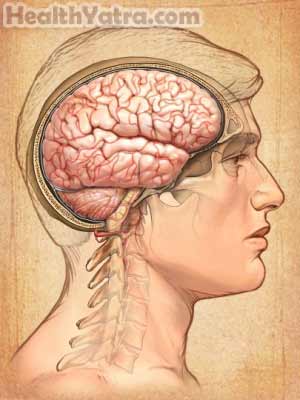Definition
Hypochondria is a health anxiety disorder. It is often chronic. A person with hypochondria is often very anxious about his or her health. A hypochondriac fears that a real or imagined minor physical symptom is a sign of serious illness. Even when several doctors assure her otherwise, a hypochondriac is convinced that she has a serious disease. Psychiatric counseling and medications can relieve some, if not all, of the anxiety and suffering. But left untreated, hypochondria can be debilitating and affect daily function.
Causes
It is often difficult to identify a specific cause for hypochondria.
Risk Factors
Factors that may increase your risk for getting hypochondria include:
- Family history of hypochondria
- Having a serious childhood illness
- Psychiatric disorders such as depression, anxiety, or personality disorder
- Physical, sexual, or emotional abuse in childhood
- Observing violence in childhood
- Stressful experience with your own or a loved one’s illness
Symptoms
Symptoms include:
- Chronic fear of serious illness
- Chronic fear that minor symptoms are signs of a serious illness
- Many physical complaints that often change over time
- The disorder:
- Lasts at least six months
- Causes major distress
- Interferes with social life or work
- You may:
- Make many doctor visits, sometimes in the same day
- Seek repeated tests for the same symptoms
- Repeatedly research information about specific illnesses and their symptoms
Diagnosis
The doctor will ask about your symptoms and medical history. A physical exam will be done. If the exam shows no disease, your doctor may begin to suspect hypochondria. If further testing also fails to uncover a known medical condition, your doctor may diagnosis you with hypochondria if:
- Your fear of illness lasts for at least six months
- No other psychological disorder is causing your fear
Treatment
Physician Relationship and Monitoring
Effective treatment involves consistent, supportive care from one doctor, often along with a mental health professional. Finding a healthcare provider who is willing to listen to your concerns, provide support, and avoid needless testing is key to recovery.
You may feel overwhelmed by your symptoms. They may even seem to control your life. Schedule frequent visits, regardless of symptoms, with one doctor you can trust. Expect your doctor to:
- Validate your distress
- Be supportive
- Direct your attention away from symptoms and focus it on functioning in daily life
- Discourage a sense of dependency and disability
- Recommend psychiatric counseling
Psychological Counseling
Psychotherapy such as cognitive behavior therapy and behavioral stress management can be effective in treating hypochondria. This involves regular counseling with a psychotherapist to recognize false beliefs, understand anxiety, and stop anxious behaviors.
Medications
Antidepressant medicines (eg, serotonin reuptake inhibitors [SSRIs], tricyclics antidepressants) may help relieve the symptoms of hypochondria.
Prevention
There are no guidelines to prevent hypochondria because the cause is not known.

